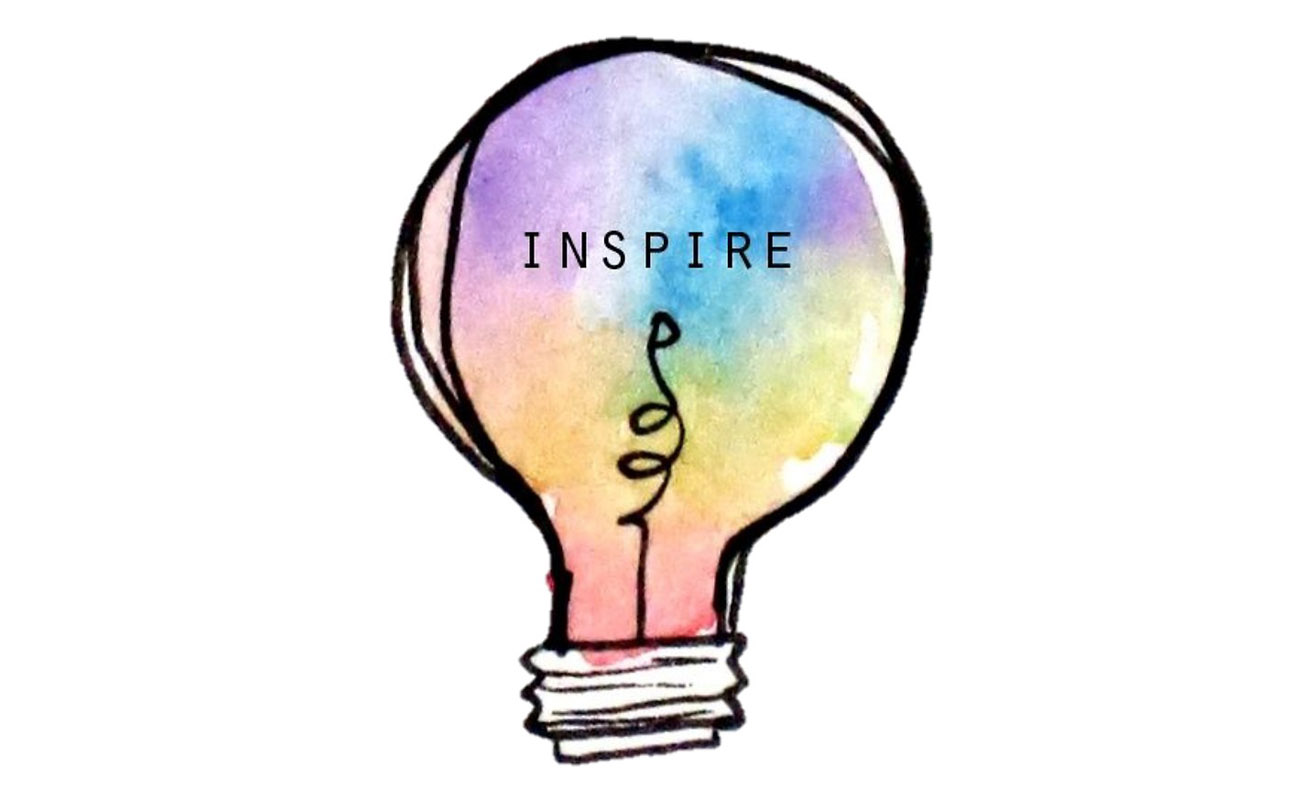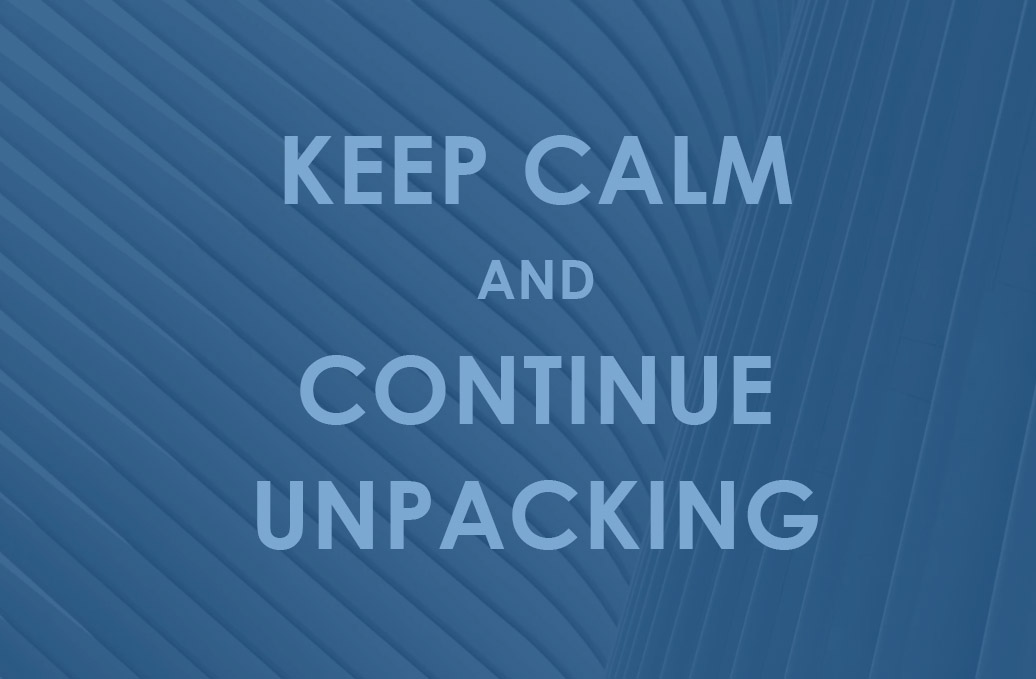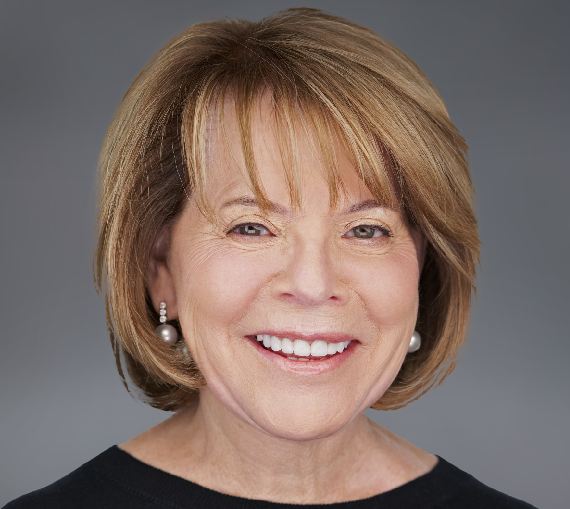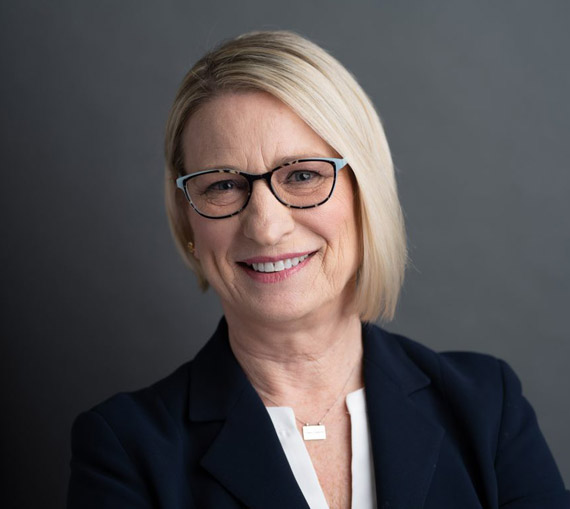In this compilation of visual and written works by girls in the juvenile justice system, The Georgetown Law Center on Poverty and Inequality and Rights4Girls provides a place for girls to share their stories from their perspective.
Good Mistakes are Good for Business
Good Mistakes are Good for Business
Mistakes are the portals of discovery. –James Joyce
Most people fear making mistakes at work. They worry they will be seen and judged as incompetent or unintelligent or they worry they may lose their job. This fear keeps people from experimenting and trying new, bold things. In contrast, as a leader, one of the things I count on from the people who work with me is that they make mistakes. And, I count on them to make really good mistakes, not bad ones.
- Good Mistakes are ones that are the result of bold action.
- Good Mistakes lead to better solutions and ultimately, better outcomes.
- Good Mistakes are the result of creative thinking and innovative ideas.
- A Good Mistake is not a failure, it is part of an incremental path to success.
- Admitting a Good Mistake makes you able to tell great stories to your colleagues—it makes you interesting. And the telling of it demonstrates humility and vulnerability.
- A Good Mistake provides one with a lens of compassion for others who too, have tried mightily and failed.
Surrounding myself by people who are bold, who take action, and who learn from their mistakes means the organization never stagnates—we never accept status quo.
Bad mistakes are ones that are the result of lazy or sloppy thinking. They reflect poor critical thinking, inattention to detail or simply lack of caring. Bad mistakes are the ones people should be very concerned about making. They are avoidable, and they can indeed cost people their job.
Key to transforming mistakes into good learning is the willingness to admit the mistake. This is essential to differentiating good and bad mistakes. When an individual is willing to admit their mistake and grow from it, it betters the team and the entire organization.
As a leader, I invite my staff to share their mistakes, as certainly, they hear mine all the time.
What do you do with your mistakes? How do you handle those of your staff?
Beyond Motivation: Inspiration as a Deliberate Practice
Beyond Motivation: Inspiration as a Deliberate Practice
Great companies don’t hire skilled people and motivate them, they hire already motivated people and inspire them. –Simon Sinek
There is no question that the individuals who work in the companies of The Fedcap Group are motivated. Embedded in their desire to work is a drive to serve the mission by creating opportunities for those we serve to achieve their dreams.
The challenge for those of us who are leaders is to inspire our motivated workforce to greatness.
I believe that inspiration is contagious. When people hear the authentic conviction of their leaders—they trust it and want to emulate it. For me, inspiration comes from a number of sources. I consider plumbing these sources an intentional practice, a deliberate part of every day. In turn, I consider the practice of inspiring others as a critical aspect of my job.
I am inspired by reading, by learning. I am inspired by the experiences of others. I am inspired by intellectually stimulating conversations. I am inspired by stories of grit and determination. I am inspired when I see someone accomplish something they never thought possible.
When inspired, I look for ways to channel this sense of possibility. I challenge staff to think bigger. I invite them to stretch their skill set, their knowledge, and their practices.
Each year I spend time with our Leadership Academy Class in order to inspire them to develop a bold vision for their careers.
We established Wednesday Morning Buzz as a forum to share with every staff member in the agency, articles that I find interesting and inspirational.
We launched Fed Talks as a way to inspire staff to step out of their comfort zones and see risk as an avenue for learning and innovation.
We established a virtual Innovation Garage as a platform for inspirational thinking.
We developed monthly Brown Bag Lunches to share inspirational approaches to our day to day work.
Inspiration is how people stay motivated and strive to realize their best work, build their skills, and innovate new solutions for tough problems.
What inspires you? How do you ensure that you stay inspired? How do you inspire your staff—even those you may not see every day?
As always, I welcome your thoughts.
Strategically Sequencing the Engagement of Great Thinkers
Strategically Sequencing the Engagement of Great Thinkers
At The Fedcap Group, whenever we are contemplating a new idea to solve a problem, we are deliberate in our approach.
We begin by gathering the most optimistic, creative, positive people both internal and external to the agency. They are invited for their optimism, their confidence that new ideas can work, their belief in all that is possible. We pose a series of clear, bold, and penetrating questions intended to drive new learning and discovery. We spend a lot of time framing the questions. At this phase, we are much less interested in getting to the right answer than we are asking the right questions.
And then we invite these creative thinkers to go at it—building on each other’s ideas and inspired by the idea that we really can change the world. There is little more exciting than a group of positive thinkers who believe in the power of unseen and untested solutions.
Once an idea is formed, we then invite another group of smart, creative people into the room. But this time, we invite people we know to be the pragmatists—the realists—who will argue with us, identify the flaws in our thinking, pose many questions, and who will help us identify the pitfalls and risks we might not have considered in our initial enthusiasm. All too often, people can overestimate the benefit of an idea or a project or a solution, but then underestimate the cost or consequence of whatever it is that we are proposing to do.
The order of invitations matters. I have learned the hard way that you never invite the pragmatists to the first meeting—they will stop the creative flow. And in the second meeting, you need to guard against letting the optimists drown out the voices of those who see legitimate risks.
Good problem-solving needs both. I believe that the strongest organizations possess the internal and external connections to solve important societal problems.
I am lucky in that I work alongside a team of extraordinary thinkers who help me lead and who inspire the best thinking of all of us. Together, I think of us as a team of realistic optimists, knowing that we share one thing in common—a commitment to sustainable and relevant impact and a commitment to the Power of Possible.
Critical Thinking: Unpacking Our Biases
Critical Thinking: Unpacking Our Biases
Recently, I was presenting to our Leadership Academy Class on the topic of critical thinking. I thoroughly enjoy these discussions with up and coming leaders within our organization.
The discussion was rich and full of wonderful exchange. I am always curious about happens when one takes a step back and truly assesses one’s own thinking. It is a fascinating process and it is a commitment to bringing a “beginner’s mind” to every situation.
One of the most compelling parts of the conversation was around the topic of bias.
We all carry biases and prejudices with us They come from our upbringing, from our culture, from our education, and from our experiences. Many people think of bias and prejudice as a bad thing—something to be eliminated. Not only do I think that is impossible, but I believe it misses the point. We are not a blank slate—hopefully we have had a life of learning, of contemplation, of reflection that has formed a lens for how we see the world.
What is imperative is that we understand our biases and how they act as a filter, sorting the value of information and ideas according to our frame of reference. For the most part, people hate cognitive dissonance. They reject information that does not align with their understanding of the world. Once we know this about ourselves, this should open our eyes to the likelihood that if biases go unchecked, we might end up missing vital information. Critical thinkers are loathe to make decisions without vital information.
I shared with the class that while I have several very intentional approaches to informing my biases, one of my most effective is to ask many, many, strategic and pointed questions. Anyone who has spent any time with me knows that when they present an idea to me, the time will be filled with answering questions. This is because when I hear information, it naturally falls into my framework (fraught with missing information), and questions help me acquire a level of understanding that is required to make an informed decision. This process is at the heart of my approach to critical thinking.
How do you assess your thinking? How are you at your own metacognition? What do you have yet to learn to help you think better about your thinking? As always, I welcome your thoughts and comments.
“It is very rewarding to be part of an organization that reaches across age groups, geographies, and populations to impact the lives of individuals with barriers to long-term economic well-being. By providing a pathway to education and employment, we are laying the foundation to break the cycle of poverty for generations to come.”
Lynn Morgen
Treasurer
“It is very rewarding to be part of an organization that reaches across age groups, geographies, and populations to impact the lives of individuals with barriers to long-term economic well-being. By providing a pathway to education and employment, we are laying the foundation to break the cycle of poverty for generations to come.”
“It is very rewarding to be part of an organization that reaches across age groups, geographies, and populations to impact the lives of individuals with barriers to long-term economic well-being. By providing a pathway to education and employment, we are laying the foundation to break the cycle of poverty for generations to come.”
“It is very rewarding to be part of an organization that reaches across age groups, geographies, and populations to impact the lives of individuals with barriers to long-term economic well-being. By providing a pathway to education and employment, we are laying the foundation to break the cycle of poverty for generations to come.”
Lynn Morgen
Treasurer
Lynn Morgen is a founding partner of Advisiry Partners–an entity at the leading edge of today’s capital market trends. Ms. Morgen specializes in advising c-suite executives and board members on corporate positioning and strategic and investor-related communications. She is known for her ability to anticipate potential stakeholder issues and develop strategies to address them.
Prior to founding Advisiry Partners, Lynn was a founding partner of MBS Value Partners, a New York-headquartered investor relations and financial communications firm.
Ms. Morgen also co-founded the investor relations consulting firm of Morgen-Walke Associates, Inc., in 1982. At the time of its sale in 2000 to a private equity firm, Morgen-Walke was the largest independent firm of its kind headquartered in the United States with full service offices throughout the world. During her five-year non-compete, Ms. Morgen served as Group Vice President and member of the Strategic Planning Group at STMicroelectronics N.V., Europe’s largest semiconductor company, listed on the NYSE, Euronext and the Borsa Italiana. She began her business career as a credit analyst with Dun & Bradstreet in New York and Brussels, then moved to the equity side where she held both research and institutional sales positions at U.S. and European investment firms. Ms. Morgen has a BA from the City College of New York.
Mitigating Risk: Eliminating Collective Lethargy
Mitigating Risk: Eliminating Collective Lethargy
Disasters often happen because of limits to the human imagination. As such keeping an open mind is a critical quality of good risk management.
–Mike Lutomski, Former NASA Risk Manager
In 2003, the space shuttle Columbia suffered a horrible loss. After what was deemed a successful mission, the shuttle unexpectedly exploded upon re-entering the earth’s atmosphere. All seven crew were killed. It was a terrible disaster.
In retrospect, and after significant, transparent analysis, it was clear that the accident was the result of a technical issue. It was also determined to be part of a cultural issue at NASA. What had seemed to be a minor problem—some pieces of loose foam—was dismissed as trivial and a waste of time and money to address. To call out the issue would have meant raising an irritating flag and so no one spoke up.
This is an example of what can happen in any organization—I call it “collective lethargy.” This is where those who know that we may be doing something that is not in our best interest—or worse—that we’re doing something that will put us at huge risk—say nothing.
The only way to combat collective lethargy is to instill risk management as a positive and active consideration in everyone’s job—no matter what level of the organization.
Some might suggest that incorporating risk management at every level is too complex. However, I see it as a function of culture and the result of great curiosity. I ask the staff at The Fedcap Group to consider three ways to incorporate risk management into their daily lives:
First: fix it! We are all stewards of the organization. We need to be proud of it as it reflects each and every one of us. If there is trash in the hallway, we don’t wait for a custodian’s shift to clean it up. We pick it up. If we see water on the floor, we wipe it up. We own it. If we see someone who needs help—even though it’s not our job necessarily to greet them, we help them.
Second: create a risk profile. A risk profile at its best is full-on scenario planning. What is the best case in the operation of this program? What is the worst case? What are the factors I can’t see in front of me? What are the consequences of those factors? What has happened in the past that I should be aware of? This is where our imagination must come into play. There is no scenario not worth considering.
Third: go where you need to go to be heard. If you feel that you are not being heard for some reason, then raise the issue again, and again until you are heard. Imagine if one of the technicians at NASA who was worried about those pieces of foam had pushed harder.
And, mitigating risk every single day—means bringing our best integrity and execution to our work—being proud of what we do and proud to be part of an organization that every day is changing and improving the lives of those we serve.
“We all need a chance to succeed. Every one of us. I am inspired every day to be working at an organization that touches the lives of so many people who need that chance.”
Carol Khoury
Chief Financial Officer
“We all need a chance to succeed. Every one of us. I am inspired every day to be working at an organization that touches the lives of so many people who need that chance.”
“We all need a chance to succeed. Every one of us. I am inspired every day to be working at an organization that touches the lives of so many people who need that chance.”
“We all need a chance to succeed. Every one of us. I am inspired every day to be working at an organization that touches the lives of so many people who need that chance.”
Carol Khoury
Chief Financial Officer
Ms. Khoury is the senior financial executive; she is a critical, strategic leader who effectuates change throughout the entire organization. She is responsible for guiding senior management and for holding key external stakeholders accountable for the execution of business commitments to the organization. She also oversees accounting, internal controls, treasury, budgeting, as well as financial planning and analysis. Ms. Khoury is responsible for analyzing data from both internal and external sources, and for deriving insights upon which to make decisions that drive greater corporate profitability. To that end, she also monitors financial health so as to optimize the financial performance of each Fedcap company, including its liquidity, and return on investment to senior leaders and key stakeholders.
Ms. Khoury joined The Fedcap Group as Controller in January 2014. In this role she was responsible for all facets of financial operations and for partnering with executives of subsidiary companies to drive revenue growth and efficient use of resources. Ms. Khoury also oversaw the payroll department for a staff of 4,000, the budgeting process, directed the audit, and federal, state and city filings process for the organization and our many subsidiaries located throughout the US and the UK.
Ms. Khoury has spent 25+ years serving in various financial roles in the nonprofit sector. She served as CFO of United Spinal Association Inc., as Deputy Treasurer for Nassau County, New York where she was a member of the Nassau County Deferred Compensation Board of Directors, and Treasurer of the Nassau County Sewer and Storm Water Finance Authority. She also served as Controller of Resources for Children with Special Needs (now IncludeNYC).
Areas of Expertise
• Managerial Finance
• Auditing
• Program Management
• Financial Reporting and Analysis
• Internal Controls
• Mergers and Acquisitions
• Team Building
• Business process Improvement
Contact Information
Carol Khoury
Chief Financial Officer, The Fedcap Group
212-727-4270
CKhoury@fedcap.org
Striving for Excellence: A Lesson in Courage
Striving for Excellence: A Lesson in Courage
Excellence is a moment-by-moment way of life.
–Tom Peters
Any leader worth her or his salt will tell you that they strive for excellence. In conversations with many people about the concept of excellence, I have discovered that some leaders will equate excellence with perfection. And yet, we all know that there is no such thing as perfection. But there is such a thing as excellence. It is, as organizational guru Tom Peters has said, a moment-by-moment way of life. It is ever-changing and ever growing. It is the best mechanism for dealing with ongoing and often, overwhelming, change. And excellence is contagious.
Just how do we inspire excellence in ourselves and in our teams and those we serve? How do we encourage dedication to a shared and bold commitment to solving tough problems? How do we remember to revisit yesterday’s idea of excellence, to know for certain that it will be very different from today’s?
Striving for excellence—and “attaining” it—lies in ongoing acts of courage.
The courage to pursue excellence begins with building a bold, crisp, and clear vision that reflects a common and agreed-upon set of values. That vision is met with organizational strategies and structures to hold it in place. Excellence is built when a leader will truly listen to points-of-view other than her own and question habitual thinking and familiar patterns. Excellence is built on taking risks that might mean failure—and having mechanisms and structures in place that will keep the organization safe in the face of total course correction if it becomes necessary. Excellence means standing firm for what we believe in—and understanding that criticism is a by-product of that stance. Courage requires standing steady. And excellence requires us to have the courage to be willing to dive into the mess and to state, unequivocally: this is how it’s going to be.
Only by flexing these muscles of courage and by building them day in and day out will we truly be able to solve the problems we set out to solve every day. Anything short of excellence lands us in a place of mediocrity and falling short of honoring the integrity of those who support us and those we serve.
My job is to call for excellence, to model the courage I require, and to ensure that the strategies and structures are in place to uphold our agreed-upon vision. It is only by aspiring to a new excellence every day, by calling forth the courage to take risks and model both strategic and practical integrity, will we enliven and realize the Power of Possible.
Leadership as a Value: Doing What’s Right
Leadership as a Value: Doing What’s Right
On this celebration of the life and legacy of Martin Luther King, Jr., I am reminded and once again inspired by his simple, yet profound statement: The time is always right to do what is right.
As a leader, people are counting on me to make smart, well-thought-out, and consequential decisions—to do the right thing. I am responsible to our staff, our funders, the people we serve, our board, and to the public at large. And so, every day, I ask myself: Am I doing the right thing? I have the responsibility to make decisions every day, and with that comes the responsibility for the consequences of those decisions.
I have always believed that leadership is an evolution of thought, of skill, of insight. I don’t believe that there is such a thing as finally “arriving” at leadership competence. I can’t imagine what that could possibly look like. It is certainly not a role, nor a title. The longer I am a leader, the more I become convinced that leadership competence is most clearly characterized by how accurately one assesses a situation. The depth of the questions, the understanding of the situational nuances such as cultural constructs, politics, social constraints, and logistics—when understood—lead to smart, or at least smarter, decisions.
Some leaders believe that their job is to seek consensus. That has never been my focus. People can come to consensus around the wrong answer. Once again, I am reminded of a quote from Martin Luther King, Jr, who said: A genuine leaders is not a searcher for consensus, but a molder of consensus. By creating a process where people are driven to work toward the right answer, not simply agreement, there is a stretching of vision, of minds and hearts. There is an excitement. There is the possibility of doing the right thing—more than we ever could imagine. We actually make a real difference–eliminating poverty, inequity, stigma.
And so, as we celebrate one of the world’s greatest leaders this week, I invite all of us—no matter what role we play, wherever we work—to heed his timeless and profound advice: The time is always right to do what is right.










